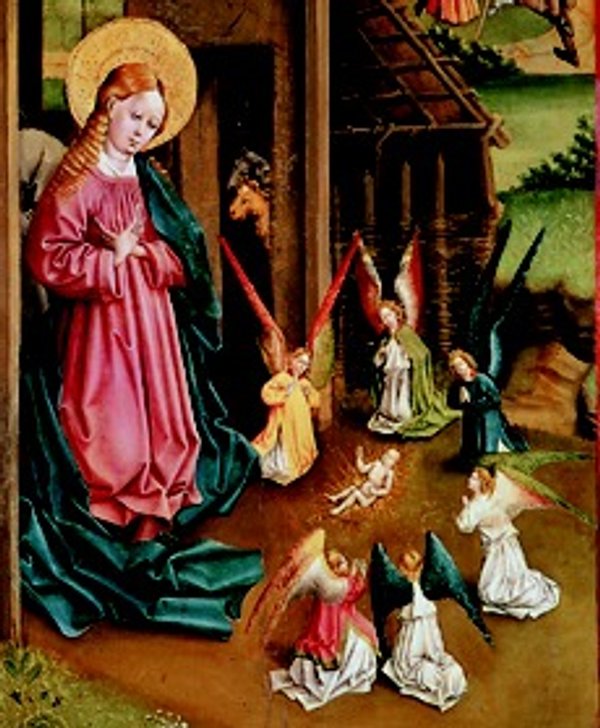Today is the first day of Advent. The entrance antiphon puts words in our mouth that echo the confident hope of this liturgical time of preparation for Christmas: rorate cæli desuper, et nubes pluant iustum (Common of the Blessed Virgin Mary, Advent Season, Entrance Antiphon, Isaiah 45:8). "Shower, O heavens, from above, and let the skies rain down righteousness."
True happiness results from identifying one's will with the will of God, as perfectly as possible. If it were otherwise, it would be weak, unsatisfying and short-lived. "The cheerfulness you should have," St. Josemaría Escrivá de Balaguer teaches us, "is not the kind we might call physiological – like that of a healthy animal. Rather, it is the supernatural happiness that comes from the abandonment of everything, including yourself, into the loving arms of our Father God" (St. Josemaría, The Way, n. 659).
We cannot find true happiness if we lose sight of the conviction that we are sinners. "If we say we have no sin, we deceive ourselves, and the truth is not in us" (1 John 1:8), admonishes St. John. But we are sinners, as the founder of Opus Dei often said, who are "madly" in love with Jesus Christ, or at least desire to be so. As a result, our weaknesses and faults can serve to give us fresh impetus to approach Him, through contrition and penance. For just this purpose our Lord instituted and entrusted to the Church the sacraments of Penance and the Eucharist, which we should receive frequently.
The first reading takes up a prayer offered on behalf of the Israelites, who had so often been unfaithful to the covenant of love that God had established with his chosen people. Isaiah recognizes the offenses they have committed and asks pardon, aware of a reality that is and will always be the supreme source of our confidence: we are children of God. It is a prayer that we can make our own, because it applies perfectly to everyone's needs.
"Thou, O Lord, art our Father, our Redeemer from of old is thy name. O Lord, why dost thou make us err from thy ways and harden our heart so that we fear thee not? Return for the sake of thy servants. O that thou wouldst rend the heavens and come down, that the mountains might quake at thy presence." (First reading, Isaiah 63:16-64:1).
What the prophet desired so deeply, that God would open the heavens, truly happened two thousand years ago with the Incarnation of the Son of God. Our hope has a firm foundation: the eternal Word, who for us men and for our salvation has become man, through the work of the Holy Spirit, in the pure womb of the Virgin Mary.
Let us give thanks to God, dear sisters and brothers, for this divine condescension, and let us try to correspond to his infinite love by offering him what love we can. Perhaps it will seem little to us, but that little we should give to the Lord without holding back.
Advent is a time of fervent hope. But it also proposes to us, above all in the first weeks, the need to avoid succumbing to the torpor of mediocrity and lukewarmness. "Take heed, watch and pray," says Jesus in today's Gospel, "for you do not know when the time will come" (Mark 13:33). That time is the moment when the Lord will ask of us an account of our life, of how we have used the gifts we have received. Are we conscious that God expects us to love and serve others no matter what situation we are in?
In the first Sunday of Advent, the Church gives us this teaching in the words of Jesus Christ in the Gospel: "It is like a man going on a journey, when he leaves home and puts his servants in charge, each with his work, and commands the doorkeeper to be on the watch. Watch therefore – for you do not know when the master of the house will come, in the evening, or at midnight, or at cockcrow, or in the morning – lest he come suddenly and find you asleep. And what I say to you, I say to all: Watch" (Mark 13:34-37).
